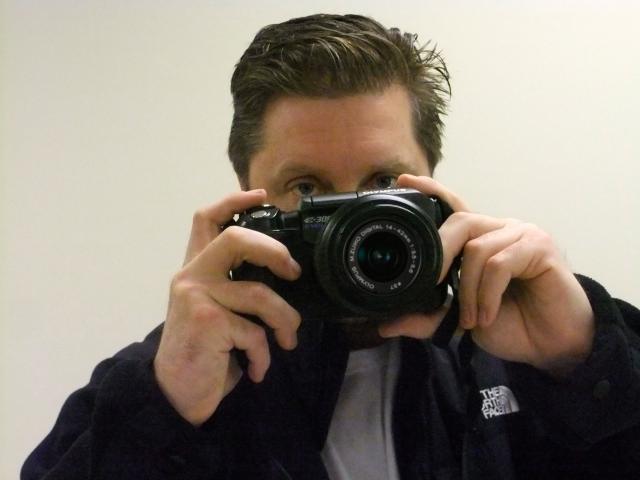If It Bleeds, It Leads
Gallery

The Media, Paranoia, and You
What started out as a simple task turned into Mission "Darn Near" Impossible for the Mirror News' very own Steven Lehmen.
Lehmen was tasked with taking a Back to School Jitters poll for the Mirror's first issue, but basic questions such as, “What are you most worried about at the start of the new semester?” proved to be too personal to answer for most students.
“One guy just flat out told me 'I don't think this is something I should be doing.’”, Lehman recalls, shaking his head, “He looked at me like I was a creeper. Maybe it was the camera.”
Yeah, Steve, maybe it was the camera...
Or maybe it is because young people these days are becoming increasingly paranoid. In a study dating back to 2008, Daniel and Jason Freeman postulated that, “The media can have a peculiarly forceful effect on us, especially when it comes to descriptions of traumatic events” (thepsychologist.org).What this means is that, whether you believe it or not, what is viewed on television and computer screens is turning the dials up on our mental anxiety meters.
For a large number of us, most of what we know about the great wide world today comes primarily from TV and the internet; and it's because of this that the media has such an adverse effect on the way we see things. There is a saying in the world of broadcasting: “If it bleeds, it leads.” “Much of the media prefers one-off episodes of conflict, death and disaster, preferably involving clearly identifiable victims and culprits – or at least items that can be made to fit this template. Complicated, ongoing stories are seen as much less newsworthy. So a murder or terrorist scare is a lead item; several thousand people dying each day from starvation rarely merits a mention” (thepsychologist.org). We are more likely to hear about a policeman shooting an unarmed person than an actual gunman. Nowadays, danger seems to lurk everywhere; whether it’s being killed outside or followed home by a stranger.
It is no longer just the threat of death that is making us weary of one another; it is the possibility of identity theft or worse - a stalker. These days it’s so easy to get a hold of personal information that people don't even want to have their pictures taken. In between Dateline on NBC and Investigation Discovery's Don't Trust Mr. Perfect, it seems like the media’s aim is to make us paranoid.
The news can't take sole credit however, for a subconscious part of us secretly desires to be afraid. This can be witnessed by the influx of horror/thrillers seen by the box office in recent years, and by how many of them have topped the charts. Also by the growing number of television shows centered around murder mysteries and crime in general. - I, for one, am already hooked on the new CBS program Stalker.
See Steve, it wasn’t the camera that scared people away after all. Well not entirely… The camera may have triggered it, but mostly it was imaginations being fired up by the fuel of irrational logic provided by the media and scary TV shows.
My message to you, HFC students, is to lighten up. We might want your picture, but that doesn’t mean that we will follow you home to get it.
